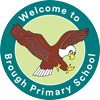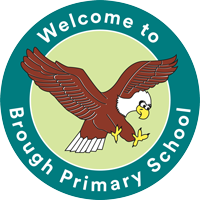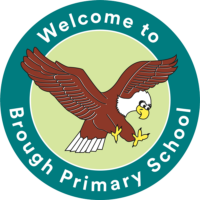Intent
Our Religious Education curriculum ensures that the children have opportunities to learn from and about religion, which will help them to understand and respect the world around them. At Brough School, we will fulfil the requirements of the The Agreed Syllabus for Religious Education by asking provoking questions about meaning and purpose in life, beliefs about God, ultimate reality, issues of right and wrong and what it means to be human. The children will have time to explore and consider different answers to these questions without barriers. Teaching therefore should equip pupils with systematic knowledge and understanding of a range of religions and views, enabling them to develop their ideas, values and identities. Pupils should learn the skills needed to articulate clearly and coherently their personal beliefs, ideas, values and experiences while respecting the right of others to differ.
Our Religious Education curriculum will provide the pupils with the knowledge and skills necessary to enable them to: appreciate the way that religious beliefs shape life and behaviour, develop the ability to make reasoned and informed judgements about religious and moral issues and enhance their spiritual, moral, social and cultural development. Children will have the opportunity to acquire and develop their knowledge and understanding of Christianity and some other principal religions represented in Great Britain.
At Brough Primary School we want children to ask questions about the world and reflect on their own beliefs, values and experiences. The Religious Education curriculum aims to encourage discussion, enquiry, debate and independence, and to agree or disagree respectfully.
Aims
The curriculum for Religious Education aims to ensure that all pupils:
Know about and understand a range of religions and worldviews, so that they can:
-
describe, explain and analyse beliefs and practices, recognising the diversity which exists within and between communities and amongst individuals
-
identify, investigate and respond to questions posed, and responses offered by some of the sources of wisdom found in religions and worldviews
-
appreciate and appraise the nature, significance and impact of different ways of life and ways of expressing meaning.
Express ideas and insights about the nature, significance and impact of religions and worldviews, so that they can:
- explain reasonably their ideas about how beliefs, practices and forms of expression influence individuals and communities
- express with increasing discernment their personal reflections and critical responses to questions and teachings about identity, diversity, meaning and value, including ethical issues
- appreciate and appraise varied dimensions of religion or a worldview.
Gain and deploy the skills needed to engage seriously with religions and worldviews, so that they can:
- find out about and investigate key concepts and questions of belonging, meaning, purpose and truth, responding creatively
- enquire into what enables different individuals and communities to live together respectfully for the wellbeing of all
- articulate beliefs, values and commitments clearly in order to explain why they may be important in their own and other people’s lives.
Implementation
At Brough Primary School we use The Agreed Syllabus for Religious Education developed by East Riding of Yorkshire, Hull City, North Lincolnshire and North East Lincolnshire as the basis for our Religious Education curriculum.
In the Early Years Foundation Stage, the children will be introduced to the key festivals and special books, special people, places of worship, symbols and artefacts for Christianity and other religions studied KS1, plus any others relevant to children in the setting. Children will be introduced to the concept of belief in a particular deity, the fact that the name for ‘god’ varies from religion to religion and, as relevant to the religions introduced, that some religions have particular rules about naming god.
We follow the programme of units for R.E. at Key Stages 1 and 2, which offer a ready-made scheme of work with built-in-progressions and coverage of all statutory aspects of the agreed syllabus.
From the syllabus it is required that:
- In the Early Years Foundation Stage the learning outcomes are referenced to Christianity and as appropriate to a range of other beliefs and cultures.
- Key Stage 1 – Christianity and one other principal religion, plus one other religion or non-religious worldview
- Key Stage 2 – Christianity and two other principal religions in some depth, plus other religions or non-religious worldviews
The following religions have been selected for study:
- Christianity Years 1,2,3,4,5 and 6
- Judaism and Baha’i faith Years 1 and 2
- Sikhism and Agnostic beliefs Years 3 and 4
- Islam and Humanism Years 5 and 6
There are no presumptions made as to the religious backgrounds, beliefs and values of the children or adults. Any religious backgrounds are valued to encourage individuals to share their own experiences freely. All religions and their communities are treated with respect and sensitivity and links which can be made between, home, school and a faith community are valued. We acknowledge that each religion studied can contribute to the education of all our pupils and promote teaching in Religious Education that stresses open enquiry and first-hand experiences wherever possible; for example, REAction and Christingle Services.
The long-term plan maps out the topics the children will study in each Key Stage. It is taken from The Agreed Syllabus for Religious Education. The subject leader provides medium-term plans for each unit of work from the agreed syllabus. This supports teachers with the development of lesson planning.
Impact
At Brough Primary School we want every child to leave us in Year 6 having had a wide range of opportunities to explore their own beliefs and the beliefs of others without barriers to learning. The impact of these, and of the quality of the provision they received, is measured through discussions, work they produce and the knowledge and skills they have developed.
We want children to enjoy learning about religions and other cultures and have the skills required to articulate clearly and coherently their personal beliefs, ideas, values and experiences while respecting the right of others to differ. Children should have knowledge of and understand a range of religions and worldviews; be able to express ideas and insights about the nature, significance and impact of religions and worldviews; and gain skills needed to engage with religions and worldviews, which will help them to meet or exceed the progression of skills requirements.
We measure the impact of our curriculum by:
- Discussing R.E. work with the children to discover how they have been inspired
- Scrutinising children’s work, with an opportunity for dialogue between teachers and the subject leader
- Monitoring of taught skills across the school to evidence progress
- Assessing pupils’ knowledge and ability to apply this to later learning
- Images and recording of children’s practical learning
- Development of learning evidenced in topic books


